IS claims deadly Jakarta attacks
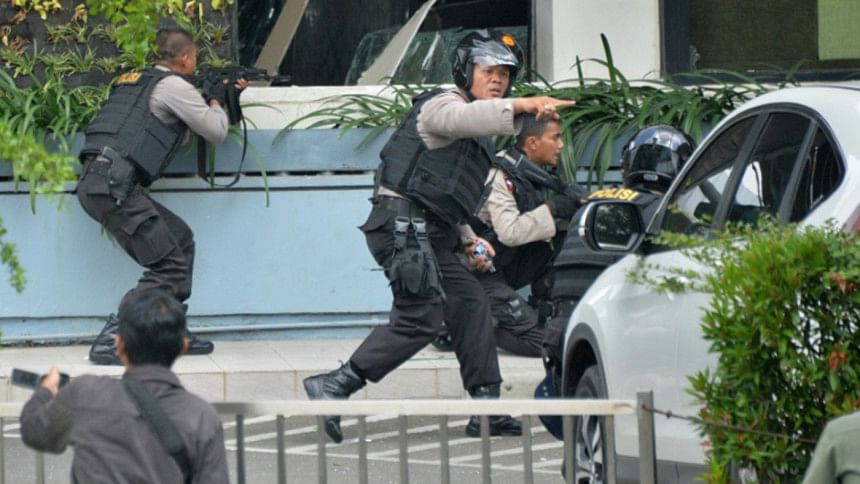
The so-called Islamic State (IS) has said it was behind a series of explosions and gun attacks in the Indonesian capital Jakarta.
At least two civilians and five attackers died in the assaults, described as an attempt to mimic the deadly Paris attacks.
Security forces battled militants for hours in a major business and shopping district.
It follows warnings late last year that Islamists were planning a major attack.
IS released a statement online claiming the attacks, which it said were carried out by "soldiers of the Caliphate", targeting "citizens of the Crusader coalition" against the group.
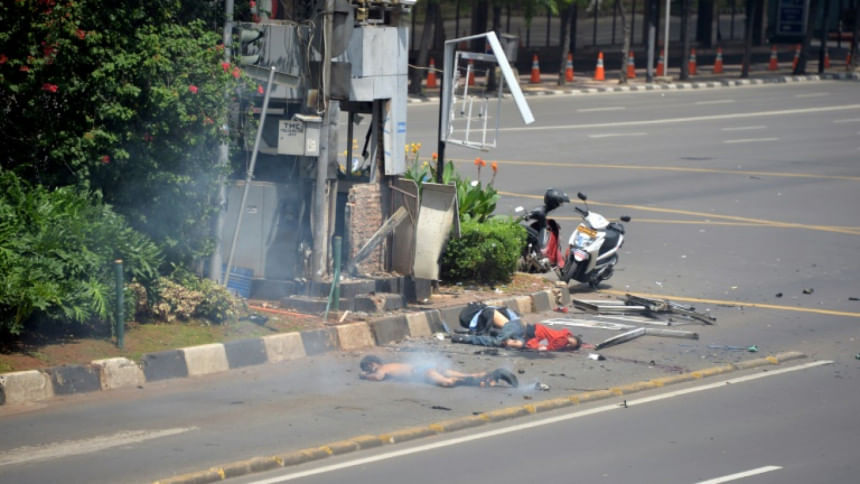
Jakarta Police chief Tito Karnavian said Indonesian national Bahrun Naim, currently thought to be in Syria, had been "planning this for a while".
The assault began late morning local time, when blasts struck near a Starbucks cafe and police security post, in an area close to embassies and government buildings.
"There was lot of commotion, a lot of craziness," said Rob Phillips, an English teacher who lives in the area.
"We heard a large bang. We thought it was thunder because the storms here are pretty big."
#NEWSGRAPHIC Close up of central Jakarta where several people have died in an attack Thursday @AFP pic.twitter.com/1RUTr3YJWm — AFP news agency (@AFP) January 14, 2016
Gunmen fled to the Djakarta Theater, part of the same complex that houses the Starbucks, where a standoff developed with police.
Explosions and gunfire rang out for hours before police declared the situation under control.
Bodies of the militants killed were left sprawling in the street. Police said 20 people were injured in the attacks, including five police officers.
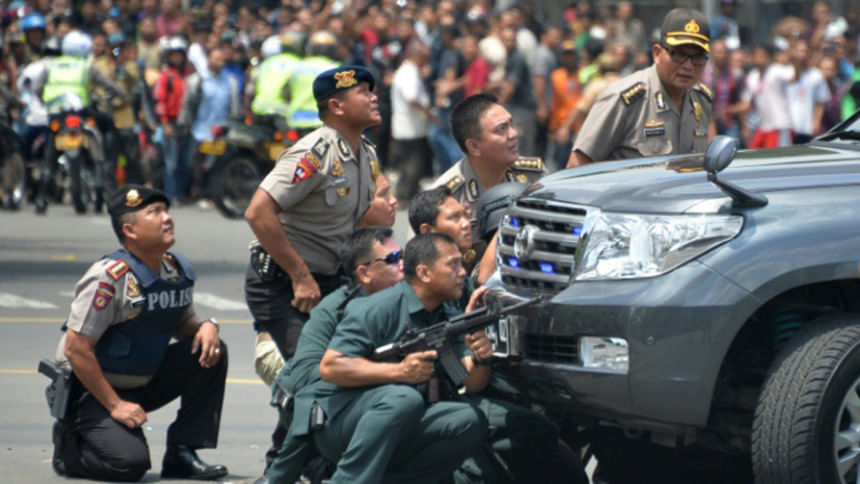
National police spokesman Anton Charliyan said the perpetrators had "imitated" the Paris attacks.
He said police had received warnings in November from IS they were planning a "concert in Indonesia", meaning an attack.
Two of the attackers were killed in a suicide bombing, police said, with the other three killed in gun battles with police.
A Canadian and an Indonesian national, both civilians, also died.
Indonesian President Joko Widodo has called on his country not to be defeated by "these acts of terror".
Several foreign governments advise caution while visiting Indonesia, with the UK Foreign Office urging its nationals to "maintain vigilance" after the attacks.
Indonesia was on high alert over the new year period after threats from IS.
Up to 200 Indonesians are estimated to have gone to Syria to fight with IS.
Latest on Indonesia attack: Police say bombing and gun attack in busy shopping area of downtown Jakarta has ended https://t.co/0woG9aBEmm — The Associated Press (@AP) January 14, 2016
Indonesia is the world's most populous Muslim nation but is largely secular, although in recent years the threat of radicalism has remained high as small networks of militants are still thought to be operating in the country.
Islamist attacks in Indonesia
Indonesia has suffered militant attacks in the past, but has been relatively successful in curbing home-grown Islamist extremism after a spate of attacks in the last decade. Some of the deadliest include:
- July 2009: Seven people killed and dozens wounded when two suicide bombers target Marriott and Ritz Carlton hotels in Jakarta
- Oct 2005: Suicide attacks in Bali leave 23 dead, including the bombers
- Sept 2004: Bomb outside Australian embassy in Jakarta kills at least nine people
- Aug 2003: Bomb at Jakarta's Marriott Hotel kills 12
- Oct 2002: Bali bombings kill 202, including 88 Australians
- Dec 2000: Church bombings across the country kill 19

 For all latest news, follow The Daily Star's Google News channel.
For all latest news, follow The Daily Star's Google News channel. 


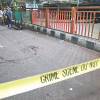
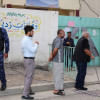
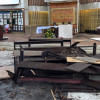



Comments